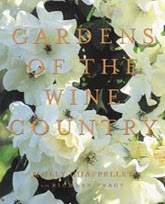Since the show on Hoarders (A&E) started airing last year, I've been getting calls from people all over the country asking me if I think they are, or their parents are, or their friends are - a hoarder.
Not everyone who is disorganized or who has a collection of items is a hoarder. Some of my clients have amassed thousands of items - which they use for their hobbies or crafts - while they may be
addicted to their collecting - they are not hoarders. Their addiction to their collections may even do them harm - financially or emotionally (usually by causing discord with spouses), but still they are not necessarily hoarders.
I follow the OCD Foundation's definition as stated below:
Compulsive Hoarding Syndrome - An Introduction
Karron Maidment RN, M.A.
Program Coordinator/Behavior Therapist
UCLA OCD Intensive Treatment Program
Hoarding is defined as the acquisition of, and inability to discard worthless items even though they appear (to others) to have no value. Hoarding behaviors can occur in a variety of psychiatric disorders and in the normal population, but are most commonly found in people with obsessive-compulsive disorder (OCD). Those people who report compulsive hoarding as their primary type of OCD, experience significant distress or functional impairment from their hoarding. They have symptoms of indecisiveness, procrastination, and avoidance, are classified as having compulsive hoarding syndrome. An estimated 700,000 to 1.4 million people in the United States are believed to have compulsive hoarding syndrome.
Compulsive hoarding is not just an enthusiast's passion for collecting stamps, dolls, or baseball cards. Neither is it someone who likes to "tinker," and fix up old cars or broken furniture.
People with compulsive hoarding syndrome may have immense difficulty throwing anything away, from the oldest paper clip, to a used food container, to an out-of-date newspaper, for fear that they might need those items in the future. Their homes are often full of stuff that the rest of us would call "junk." The most commonly saved items include newspapers, magazines, old clothing, bags, books, mail, notes, and lists.
Along with difficulties in throwing things away,
compulsive hoarders have severe difficulties making decisions, perfectionism, and avoiding tasks. People with compulsive hoarding syndrome do not like to make mistakes. To prevent making a mistake, they will avoid or postpone making decisions. Even the smallest task, such as washing dishes or checking mail may take a long time because it has to be done "right." The net result of these high standards and the fear of making a mistake is that compulsive hoarders avoid doing many tasks, because everything becomes tedious and overwhelming.
To differentiate "normal" collecting from compulsive hoarding, Dr. Randy Frost and his colleagues define the compulsive hoarding syndrome according to three criteria:
T
he acquisition of, and failure to discard, possessions that appear to be useless or of limited value. Compulsive hoarders have an obsessive need to acquire and save many objects, and tremendous anxiety about discarding them, because of a perceived need for the objects for their apparent value. Sometimes an excessive emotional attachment to them develops. A compulsive hoarder will think, "This is too good to throw away," "This is important information," "I will need this later on," "This should not be wasted." These thoughts are generally normal, but their frequency and the importance attached to them are clearly excessive in compulsive hoarders. If they have any doubt at all as to the value of an object -- no matter how trivial, compulsive hoarders will keep it -- just in case.
Living spaces sufficiently cluttered so as to preclude activities for which those spaces were originally designed. Obviously, with many items coming into the home and very few going out, the clutter will accumulate. It does not take long for the clutter to spread onto the floors, counter tops, hallways, stairwells, garage, and cars. Beds become so cluttered that there is no room to sleep. Chairs become buried under clutter, so there is nowhere to sit. Kitchen counters become so cluttered that food cannot be prepared. For many hoarders, it gets to a point where there might be only a narrow pathway that connects each room, and the rest of the house is piled several feet high with clutter. It becomes impossible to use many areas of the house for their original purpose.
Significant distress or impairment in functioning is caused by the hoarding. Because of their desire for perfection, compulsive hoarders frequently take a long time to do even small chores. An inordinate amount of time may be spent "churning" -- moving items from one pile to another but never actually discarding any item nor establishing any consistent organizational system. Many compulsive hoarders have limited social interactions. The nature of their problem makes them socially isolated. They are frequently too embarrassed by their clutter to have people come to their home, sometimes for many years. Some compulsive hoarders are able to work, but they will often comment that they are not working in a job that fully utilizes their skills or potential. They always come in early and leave late because they take much longer than other people to finish tasks. A survey of elderly hoarders found that hoarding constituted a physical health threat in 81% of identified cases. These included threat of fire hazard, falling, unsanitary conditions, and inability to prepare food.
Given this profile, it appears that people with compulsive hoarding syndrome have unique deficits in problem solving and information processing. Compulsive hoarders have a distinct behavioral profile and a characteristic pattern of symptoms and functional disability. This requires a different treatment approach from that used for other types of OCD. Compulsive hoarding syndrome may represent a subgroup or variant of OCD that is caused by different genetic and familial factors than non-hoarding OCD.
http://www.ocfoundation.info












